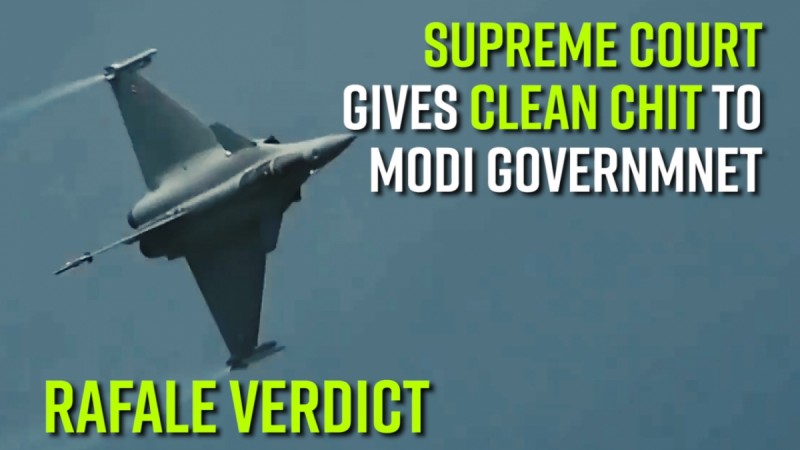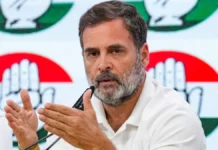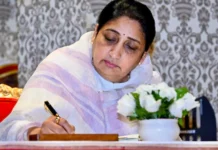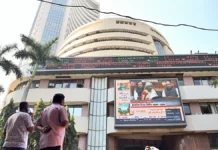NEW DELHI: The Supreme Court Thursday gave clean chit to the Modi government on the purchase of 36 fully loaded Rafale fighter jets from French company Dassault Aviation, rejecting the plea for registration of an FIR by the CBI for alleged commission of cognisable offence in the deal.
The apex court dismissed the pleas seeking review of the December 14, 2018 verdict in which it had said that there was no occasion to doubt the decision-making process in the procurement of 36 Rafale fighter jets. The top court was not satisfied with the submission that it decided the disputed questions of facts in the Rs 58,000 crore deal “prematurely” without investigation.
The rejection of review petitions is tantamount to the apex court giving the clean chit to the Narendra Modi government for the second time. “We do not consider this to be a fair submission for the reason that all counsels, including counsel representing the petitioners in this matter addressed elaborate submissions on all the aforesaid three aspects.
“No doubt that there was a prayer made for registration of FIR and further investigation but then once we had examined the three aspects on merits we did not consider it appropriate to issue any directions, as prayed for by the petitioners which automatically covered the direction for registration of FIR, prayed for,” said a bench headed by Chief Justice Ranjan Gogoi. The review applications cannot be entertained unless there is an “error apparent on the face of the record”, the apex court said.
The bench said it cannot lose sight of the fact that it is dealing with a contract for aircrafts, which was pending before different governments for quite some time and the necessity for those aircrafts has never been in dispute.
“We had concluded that other than the three aspects — Decision Making Process, Pricing and Offsets — that too to a limited extent, this Court did not consider it appropriate to embark on a roving and fishing enquiry. “We were, however, cautious to note that this was in the context of the writ petition filed under Article 32 of the Constitution of India, the jurisdiction invoked,” said the bench, also comprising Justices S K Kaul and K M Joseph.
The petition seeking re-examination of the December 14, 2018 verdict was filed by former Union ministers Yashwant Sinha, Arun Shourie and activist lawyer Prashant Bhushan. Other review petitions were filed by lawyer Vineet Dhandha and Aam Aadmi Party lawmaker Sanjay Singh.
The Rafale fighter is a twin-engine Medium Multi Role Combat Aircraft (MMRCA) manufactured by French aerospace company Dassault Aviation. While dealing with the allegation of irregularities on the pricing of the jets, the top court said that it satisfied itself with the material made available and it is not the function of this court to determine the prices and act on mere “suspicion” of certain persons.
“The internal mechanism of such pricing would take care of the situation. On the perusal of documents we had found that one cannot compare apples and oranges. Thus, the pricing of the basic aircraft had to be compared which was competitively marginally lower. “As to what should be loaded on the aircraft or not and what further pricing should be added has to be left to the best judgment of the competent authorities,” the bench said.
With regard to the decision making process, the apex court said the petitioners contended there was contradictory material on the basis of certain documents obtained.
“We, however, found that there were undoubtedly opinions expressed in the course of the decision making process, which may be different from the decision taken, but then any decision making process envisages debates and expert opinion and the final call is with the competent authority, which so exercised it.
“In this context reference was made to (a) Acceptance of Necessity granted by Defence Acquisition Council not being available prior to contract which would have determined necessity and quantity of aircrafts; (b) absence of Sovereign Guarantee granted by France despite requirement of the Defence Procurement Procedure; (c) oversight of objections of three expert members of Indian Negotiating Team regarding certain increase in benchmark price; and (d) induction of Reliance Aerostructure Limited as an offset partner,” the apex court said.
The bench said it appears that the petitioners construed themselves as an appellate authority to determine each aspect of the contract and involve the court to do the same.
“We do not believe this to be the jurisdiction to be exercised. All aspects were considered by the competent authority and the different views expressed considered and dealt with. It would well nigh become impossible for different opinions to be set out in the record if each opinion was to be construed as to be complied with before the contract was entered into. It would defeat the very purpose of debate in the decision making process,” the bench said.
On the contention that some aspects were not available to them and came to light subsequently by their ‘sourcing’ information after the December 14, 2018 decision, the apex court said, “We decline to, once again, embark on an elaborate exercise of analysing each clause, perusing what may be the different opinions, then taking a call whether a final decision should or should not have been taken in such technical matters”. PTI







